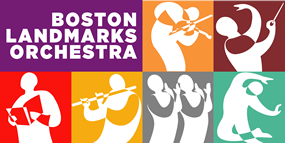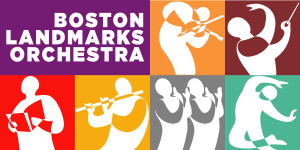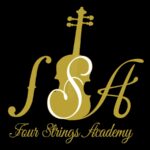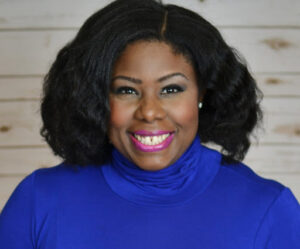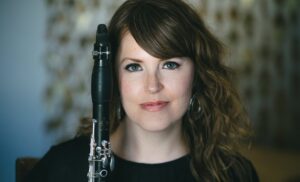by Christopher Wilkins
Welcome to Boston Landmarks Orchestra’s 2024 season on the Esplanade. Our purpose is to provide great orchestral music to all Bostonians. We are committed to Breaking Down Barriers, allowing us to serve the blind community, the deaf and hard of hearing, people with mobility challenges, and folks with memory loss. Special thanks to Christopher Robinson and our dedicated American Sign Language team for their two decades of commitment to the cause.
We’re hosted by the Department of Conservation and Recreation, who own and maintain this spectacular linear park. We deeply appreciate the partnership of the Esplanade Association, who have refurbished the lawn of the Oval in recent years. And we are especially grateful to all the individual donors, the foundations, the Commonwealth, and most of all, the Free for All Concert Fund, for generously supporting the orchestra and its mission.
Opening night is a sampling of great American works, both familiar and novel. George Gershwin’s Girl Crazy was an instant sensation on Broadway. It introduced several of his best-known songs, including “I Got Rhythm,” “Embraceable You,” and “But Not for Me.” It also launched the career of Ethel Merman, and of Ginger Rogers, who made her stage debut playing the romantic lead. The pit orchestra was a Who’s Who of jazz icons: Benny Goodman, Glenn Miller, Jimmy Dorsey, and Gene Krupa.
Jessie Montgomery’s Freedom Songs are powerful and personal settings of Negro spirituals. We perform four of the original five movements tonight. She set the songs for soloist, strings, and percussion in collaboration with soprano Julia Bullock. The composer writes, “we wished to honor our shared African American heritage and the tradition of the Negro spiritual, while also experimenting with non-traditional stylistic contexts.” She continues:
Each of the songs in this cycle is sourced from the historical anthology Slave Songs of the United States (originally published by A. Simpson & Co., New York, 1867). “My Lord, What a Morning” is the original lyric to the popular spiritual “Stars Begin to Fall,” which originated in the Southeastern United States. “My Father, How Long?” contains the refrain “We will soon be free… De Lord will call us home,” reflecting the dual meaning of spiritual salvation and freedom from oppression. It is a song that emerged from a jail in Georgetown, SC at the break of the Great Rebellion, here accompanied by percussive sounds in the strings evoking a chain gang. “Lay dis Body Down,” a funeral song said to originate from South Carolina, is in an improvised style, wherein each part of the ensemble chooses their own pacing to create a swirling meditation. “The Day of Judgment” originates from the region surrounding Louisiana and is set as an uneasy celebration over the refrain of a traditional West African drumming pattern.
We are thrilled to present Joelle Lamarre, an exceptionally charismatic American singer, actress, director, and poet. She lives in Chicago, but has Boston history, having worked at the American Repertory Theater as associate music director for The Black Clown, a world premiere musical adaptation of the Langston Hughes poem by Davóne Tines and Michael Schachter. Tonight, in addition to Freedom Songs, she performs Summertime, a song that could serve as an unofficial anthem for the Boston Landmarks Orchestra. Gershwin’s unforgettable music is a jazz lullaby in the style of a spiritual. Stephen Sondheim loved Dubose Heyward’s lyrics, writing that they are the “best lyrics in the musical theatre.”
Throughout the musical world, Randall Thompson is best known for his choral masterpiece, Alleluia, which he composed for the opening ceremony of the very first Berkshire Music Festival at Tanglewood in 1940. Fulfilling Music Director Serge Koussevitsky’s wish, Thompson composed a work that the whole Tanglewood community could sing together. It is still performed every year at Tanglewood’s opening session.
Thompson was born in New York City in 1899, but spent much of his career in Boston, where he died in 1984. Teaching at Harvard University and Wellesley College, he balanced composing against teaching. Harvard, Wellesley, the University of Virginia, and the Curtis Institute of Music were all enriched by his devotion to education. But there is no doubt that he sacrificed his own creative output in order to serve his students and institutions.
Thompson’s greatest orchestral success was his Second Symphony, premiered by Howard Hanson and the Rochester Philharmonic in 1932. Many esteemed conductors championed the work over the next thirty years, including Serge Koussevitsky, Charles Munch, Erich Leinsdorf, Fritz Reiner, Eugene Goossens, and John Barbirolli. Bruno Walter, after conducting the work with the New York Philharmonic, wrote to Thompson, “I assure you once more of the high appreciation in which I hold your Symphony: [it has] vitality, musical inspiration, artistic ability, and a noble humanity…”
Leonard Bernstein, who led the Second Symphony many times with the New Philharmonic—and recorded it with that orchestra as well—had a special relationship with the work. Probably because he had been Thompson’s orchestration student at Curtis in 1939, Bernstein was assigned to conduct the symphony in 1940 at the first Berkshire Music Festival, the same Tanglewood season for which Thompson had composed his Alleluia. Bernstein told his conducting teacher, Fritz Reiner, that conducting the Second Symphony with the student orchestra was “…the greatest moment of my life. It seemed significant too, that the first work I should conduct in life was a modern American work.” It was his first public performance as a conductor, though his “professional” conducting debut took place the following summer here, at the Hatch Memorial Shell, leading the Boston Pops on July 11, 1941.
If you heard Randall Thompson’s Second Symphony without knowing what it was—even if you had little experience with classical music—you could likely identify it as an American work from the 1930s. It is populist in a way that many American composers of the depression era expressed themselves. It is full of vigor, wit, sentiment, and occasional lushness. Stylistically, it is an amalgam of American dance rhythms, jazz harmonies, and folk style. It has an affinity with the music of Gershwin, William Grant Still, and Jerome Kern. The American historian and educator Jacques Barzun once wrote, “all his work… shows the kind of an artist who does not simply echo popular sentiment, but distills meaning from popular experience.” Barzun also told a pertinent story: “I remember telling Randall that his way of speaking, acting, and dressing; his letters and his music were all marked by one quality—elegance.”
John Williams is, of course, a revered Boston figure. He is forever tied to this venue, not only for his many years conducting the Pops on the Fourth of July, but also because he is the only living composer among the eighty-eight whose names adorn the Hatch Shell. Williams’s career spans seven decades, during which time he has won five Academy Awards and twenty-six Grammys. His fifty-four Academy Award nominations are the second most in history. Only Walt Disney has more. We’re especially thrilled to feature the Landmarks Orchestra’s principal clarinet Rane Moore tonight. She is a vital presence in many leading ensembles throughout the Boston area, and a passionate educator as well. She also serves as co-artistic director of Winsor Music, a chamber music organization with a special mission. She performs Williams’s concerto-like “Viktor’s Tale” from The Terminal. This characterful music gives her an opportunity to be playfully virtuosic in music Williams describes as coming from “an imaginary Eastern European country.”
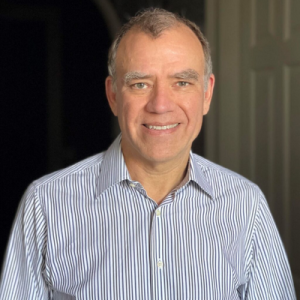 CHRISTOPHER WILKINS was appointed Music Director of the Boston Landmarks Orchestra in the spring of 2011. Since then, he has expanded the orchestra’s mission of making great music accessible to the whole community. He has also helped develop the orchestra’s Breaking Down Barriers initiative, making accessibility a priority in all aspects of the orchestra’s activities.
CHRISTOPHER WILKINS was appointed Music Director of the Boston Landmarks Orchestra in the spring of 2011. Since then, he has expanded the orchestra’s mission of making great music accessible to the whole community. He has also helped develop the orchestra’s Breaking Down Barriers initiative, making accessibility a priority in all aspects of the orchestra’s activities.